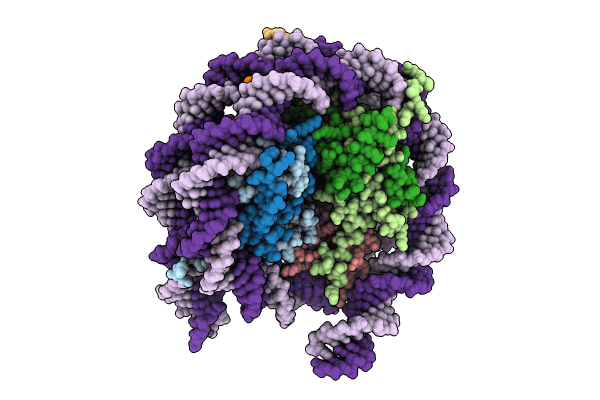
Deposition Date
2024-02-03
Release Date
2024-10-09
Last Version Date
2025-05-21
Entry Detail
PDB ID:
8VX5
Keywords:
Title:
Nucleosome core particle containing an 8-oxoG damage site
Biological Source:
Source Organism(s):
Xenopus laevis (Taxon ID: 8355)
synthetic construct (Taxon ID: 32630)
synthetic construct (Taxon ID: 32630)
Expression System(s):
Method Details:
Experimental Method:
Resolution:
3.30 Å
Aggregation State:
PARTICLE
Reconstruction Method:
SINGLE PARTICLE


